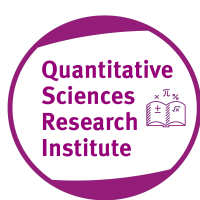
ABSTRACT
Geophysicists examine and document the repercussions for the earth’s climate induced by alternative emission scenarios and model specifications. Using simplified approximations, they produce tractable characterisations of the associated uncertainty. Meanwhile, economists write simplified damage functions to assess uncertain feedback from climate change back to the economic opportunities for the macroeconomy. How can we assess both climate and emissions impact, as well as uncertainty in the broadest sense, in social decision-making?
In this lecture, Lars Peter Hansen will provide a framework for answering this question by embracing recent decision theory and tools from asset pricing, and applying this structure with its interacting components in a revealing quantitative illustration.
AGENDA
17:30-18:00 Registration
18:00-18:10 Introduction by Professor Ian Walmsley FRS, Provost of Imperial College London
18:10-18:50 Lecture by Professor Lars Peter Hansen, University of Chicago
18:50-19:00 Q&A from the audience
19:00 Drinks reception
Register now
About the Speaker
Professor Lars Peter Hansen is a leading expert in economic dynamics who works at the forefront of economic thinking and modeling, drawing approaches from macroeconomics, finance, and statistics. He is a recipient of the 2013 Sveriges Riksbank Prize in Economic Sciences in Memory of Alfred Nobel.
Hansen has made fundamental advances in our understanding of how economic agents cope with changing and risky environments. He has contributed to the development of statistical methods designed to explore the interconnections between macroeconomic indicators and assets in financial markets. These methods are widely used in empirical research in financial economics today. The Nobel Prize recognizes this work, which has been used to test theories and models that have shaped our modern understanding of asset pricing. His recent research explores how to quantify intertemporal risk-return tradeoffs and ways to model economic behavior when consumers and investors struggle with uncertainty about the future. Improving models that measure risk and uncertainty have important implications for financial markets, fiscal policy, and the macroeconomy.
Hansen joined the faculty of the University of Chicago’s Department of Economics in 1981 and has served as department chairman and director of graduate studies. He is now David Rockefeller Distinguished Service Professor of Economics, Statistics, Booth School of Business and the College. He was the inaugural director of the Becker Friedman Institute until July of 2017. Read Lars’ personal reflection on the beginnings of the Becker Friedman Institute here. He currently directs the Macro Finance Research Program housed under the Becker Friedman Institute.
Hansen holds a bachelor’s degree in mathematics and political science from Utah State University and a doctorate in economics from the University of Minnesota. Hansen has also received numerous honorary degrees, including an honorary doctorate from Utah State University in 2012. Hansen’s recent work focuses on uncertainty and its relationship to long run risks in the macroeconomy. He explores how models that incorporate ambiguities, beliefs, and skepticism of consumers and investors can explain economic and financial data and reveal the long-term consequences of policy options. Hansen, Thomas J. Sargent, and their coauthors have recently developed methods for modeling economic decision-making in environments in which uncertainty is hard to quantify.They explore the consequences for models with financial markets and characterize environments in which the beliefs of economic actors are fragile.
About the Quantitative Sciences Research Institute (QSRI)
 The QSRI was launched in 2017 recognising that Mathematics and Statistics underpin advances in many sciences and can provide answers to challenging problems in numerous disciplines. The QSRI has three key objectives: to facilitate the interaction of scientists from different disciplines around the theme of ‘quantitative sciences’, to help break down language barriers between different disciplines and to match the right quantitative approaches, tools and capabilities to scientific questions. In order to achieve these goals, the QSRI runs four schemes: scientific workshops, small networking events for scientists from different disciplines, an annual lecture series and a summer school to train future quantitative scientists.
The QSRI was launched in 2017 recognising that Mathematics and Statistics underpin advances in many sciences and can provide answers to challenging problems in numerous disciplines. The QSRI has three key objectives: to facilitate the interaction of scientists from different disciplines around the theme of ‘quantitative sciences’, to help break down language barriers between different disciplines and to match the right quantitative approaches, tools and capabilities to scientific questions. In order to achieve these goals, the QSRI runs four schemes: scientific workshops, small networking events for scientists from different disciplines, an annual lecture series and a summer school to train future quantitative scientists.
About the Brevan Howard Centre for Financial Analysis
 The Centre dramatically enhances Imperial College Business School’s expertise in financial economics and strengthens ties with other disciplines, including engineering and computational finance. The Centre’s purpose is to serve as a bridge between the Business School and the world of business, to develop a greater understanding and more efficient management of risk, and to promote investment and productivity. The areas of interest are across three broad streams of research: Financial stability and financial regulation, Comparative financial systems and designing new financial structures, and Financing development, environment protection and medicines.
The Centre dramatically enhances Imperial College Business School’s expertise in financial economics and strengthens ties with other disciplines, including engineering and computational finance. The Centre’s purpose is to serve as a bridge between the Business School and the world of business, to develop a greater understanding and more efficient management of risk, and to promote investment and productivity. The areas of interest are across three broad streams of research: Financial stability and financial regulation, Comparative financial systems and designing new financial structures, and Financing development, environment protection and medicines.


